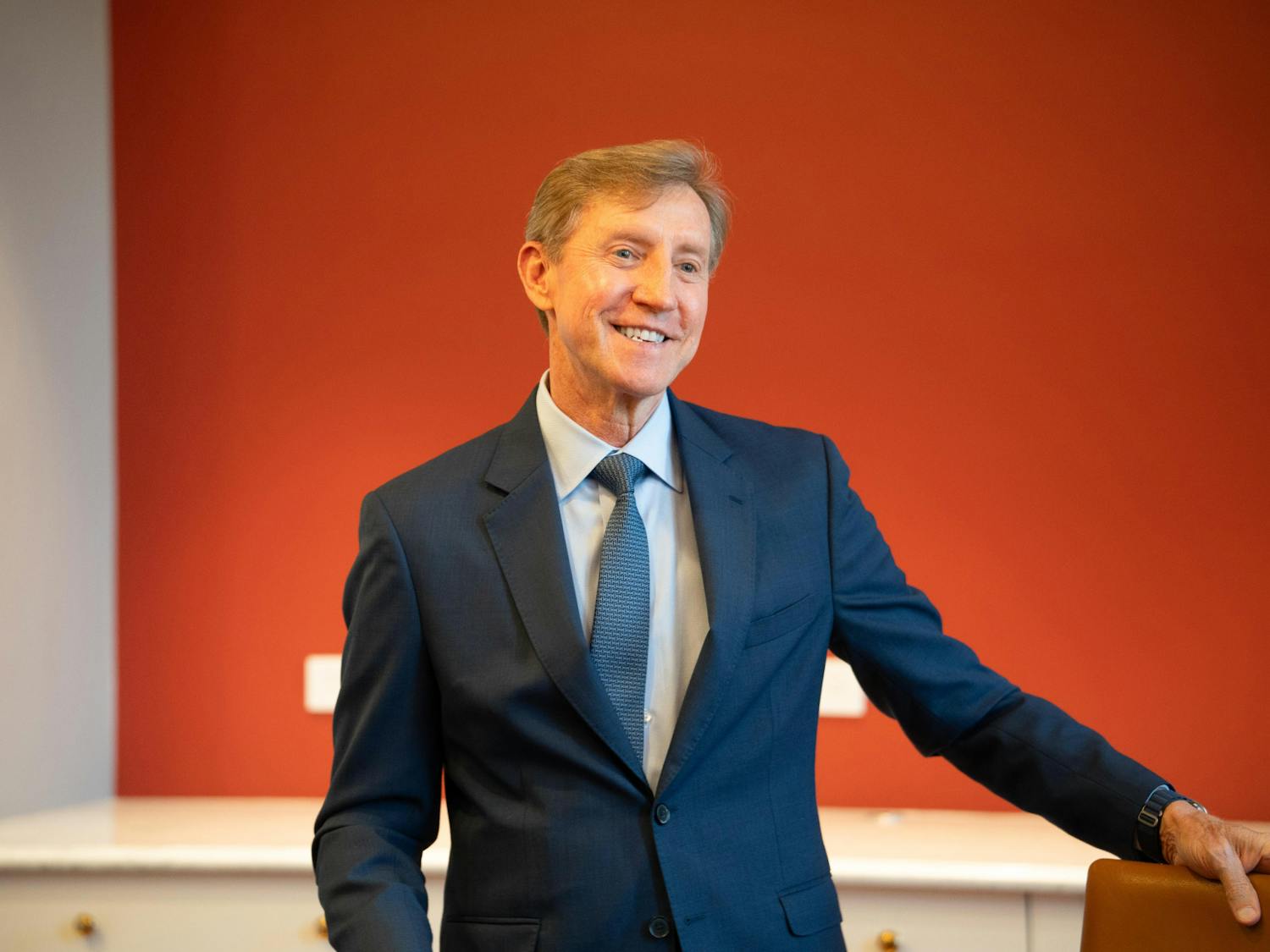In light of recent economic turbulence and the Occupy movement, educational institutions are searching for the best ways to teach economics to their students.
Earlier this month, around 70 Harvard University students walked out of professor N. Gregory Mankiw’s introductory economics class due to a perceived conservative bias in his lectures and textbook.
Over 700 students are enrolled in the class, the largest undergraduate lecture at Harvard, according to The Harvard Crimson.
While some students at Harvard have found ideological slants in their economics classes, Penn students have not expressed similar complaints.
Mankiw, a conservative economist, served as chair to the Council of Economic Advisers under George W. Bush from 2003 to 2005. He signed on as Mitt Romney’s economic adviser in 2006.
His textbook, Principles of Economics, has sold more than one million copies worldwide. It is used in his own class and in Economics 002, Introduction to Macroeconomics, at Penn.
The class, taught by Luca Bossi, enrolls about 200 students in the fall semester and 500 in the spring.
Bossi chose the textbook because he believes it is one of the best introductory macroeconomics texts available in the market. He adds that the material is “clearly explained” and does not contain any partisan slants.
“I think the fact that Professor Mankiw has advised and still is advising Republican candidates running for office gives the impression to people that he is a conservative in the way he approaches economics,” he said. However, this “is not reflected in the content of the book.”
Harvard freshman Rachel Sandalow-Ash, one of the organizers of the walkout, said Mankiw is “someone who is a key player in creating policies that led to the collapse of financial systems and concentration of power — all things that the Occupy movement is citing.”
Along with fellow student protestors — who walked out of the class in solidarity with the Occupy movement — she feels the class is unfair. “We only read his textbook. The only perspective we get is his.”
Sandalow-Ash said that in his textbook, Mankiw pits economic efficiency and economic equality as two competing goals. Research from International Monetary Fund reports and other sources, however, indicate they these are actually compatible, she said.
“At one point in the textbook, he claims that racism is caused by rent control,” she added.
Bossi does not believe the student walkout was effective. “I think students can form their own opinions and disagree with the professor without necessarily walking out of a class, but rather arguing and explaining their point of view,” he said.
Bossi said he does not present any partisan bias in his class. He does not see the material as controversial — “sort of like teaching principles of chemistry.”
However, some topics can be seen as more political, he said, adding that he tries not to cross the line between a positive and a normative statement.
Samara Gordon, a College sophomore in the class, enjoys Bossi’s teaching style because it promotes open dialogue. She said that he supplements the course with relevant news articles “that aren’t construed as conservative or liberal.”
College sophomore Owen Gantz, who plans to major in economics, said classical economic ideas such as the free market are inherently conservative.
“Conservatism aligns itself with classical Economics more. So the class doesn’t have an conservative bias, it has an economic bias.”
“Maybe the Occupy movement is reading too much into introductory econ,” he added.
Sandalow-Ash, however, believes the conservative bias she sees in Mankiw’s class and textbook results from a simplification of economics.
She believes the class should include more readings of primary texts and understanding there are many different perspectives to view economic policies. “Right now, we don’t read Adam Smith. We read what Mankiw thinks Adam Smith has to say,” she said.
However, that may fall outside the scope of an introductory class.
“One of our primary goals in the economics program is to teach students a set of analytical tools that allows them to think coherently about economic issues — both positive and normative,” Penn’s Economics Department chair Frank Schorfheide wrote in an email.
Schorfheide wants students to consider multiple models of a policy and confront them with empirical evidence.
“All of this is a task too complex to be accomplished in a single introductory course or based on a single textbook,” he wrote, adding that these goals are more likely to be achieved through the full curriculum of the Economics major.








